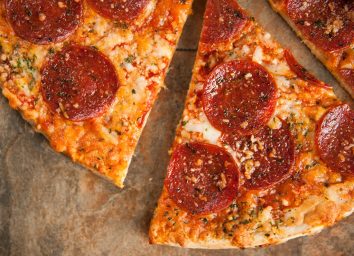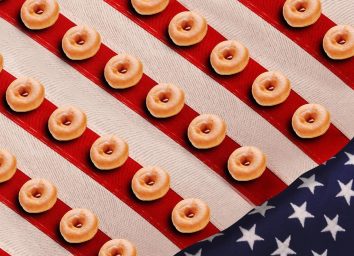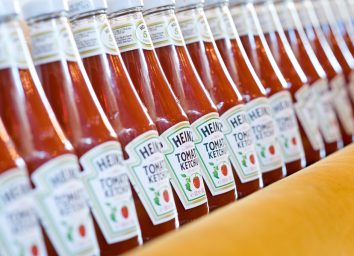14 Foods That Are Banned Around the World

There are certain kinds foods that should be avoided for health reasons, but what about dishes with government laws against them? Some of your favorite foods could be banned internationally for a host of environmental, dietary, and customary reasons.
We've rounded up a list of 14 foods that are illegal to consume and produce in certain countries. With crimes ranging from trademark infringement to inhumane production processes associated with them, these foods and beverages are unlawful here and across the globe.
In addition to steering clear of these illegal foods, be sure to check out our list of the 75 Unhealthiest Foods On the Planet to avoid any diet disasters.
Farm-Raised Salmon
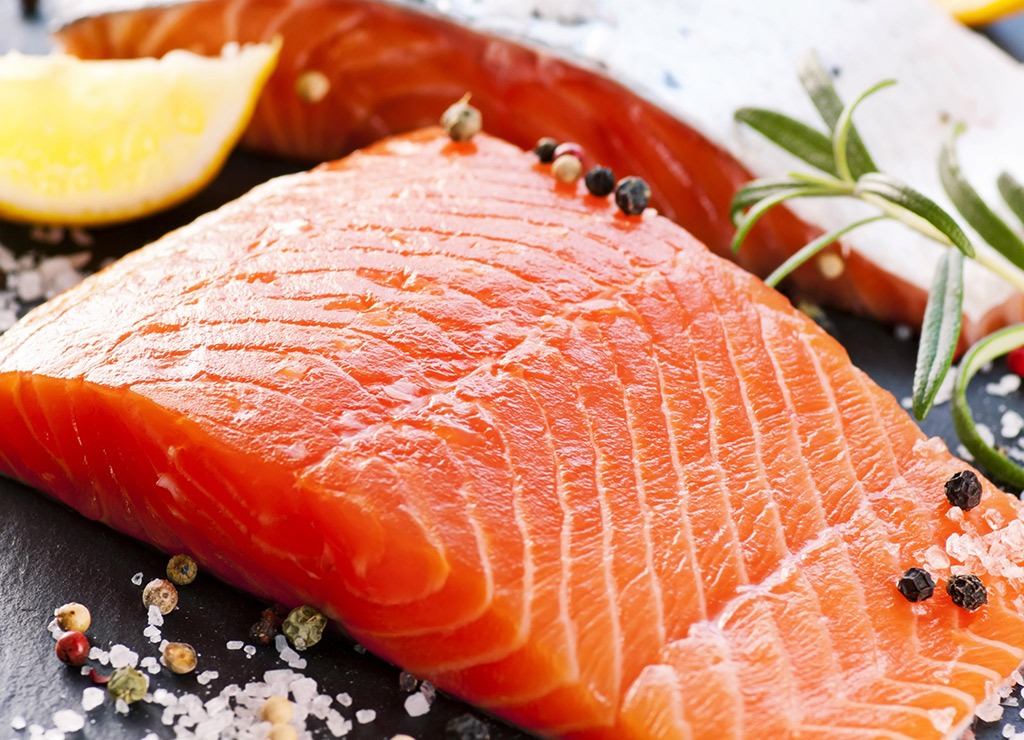
Everyone's favorite pink-hued fish has a dark side, at least when it comes to the farm-raised variety. Also known as Atlantic salmon, these fish pose a number of environmental concerns, according to The Environmental Defense Fund. Nations including New Zealand and Australia have banned the sale and consumption of farm-raised salmon in an effort to reduce pollution. When it comes to grocery shopping, avoid salmon with a greyish hue and gravitate towards fish that's labeled "sockeye" or "Alaskan" to make sure you're eating the wild variety
Kinder Surprise Eggs
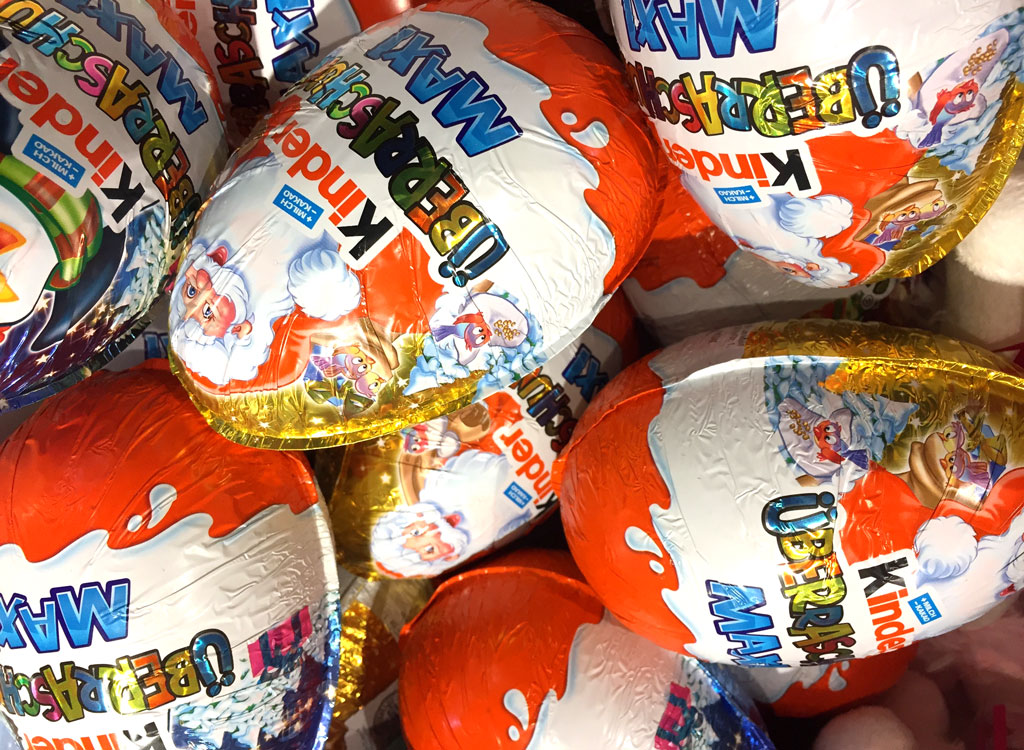
These British imports are banned from the US, and not for their tendency to become addictive. Instead, these chocolate treats are off limits in America because they contain an inedible object in their center, which violates the Food and Drug Administration's regulations. They are considered to be a choking hazard because young children may mistakenly try to eat the toy in the center of the chocolate.
Foie Gras
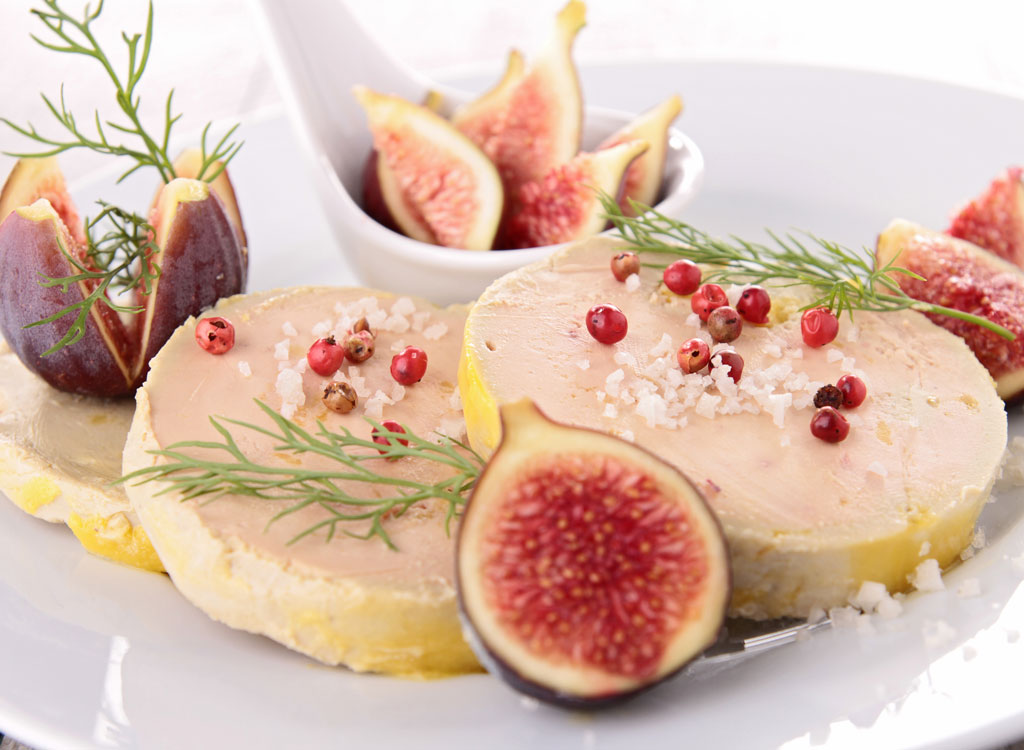
Foie gras may be a French delicacy, but it has no place in California. The state recently reinstated a ban on this fatty duck and goose liver, citing the inhumane treatment of livestock as the reason for the prohibition. The birds are force-fed through tubes in order to enlarge the liver to up to ten times its normal size. Animal rights organizations such as PETA are celebrating the ban while many California chefs and livestock farmers are eager to see it overturned. In addition to California, Italy, India, Denmark, Finland, Norway, Poland, Israel, and Germany all have bans or restrictions on foie gras.
Beluga Caviar
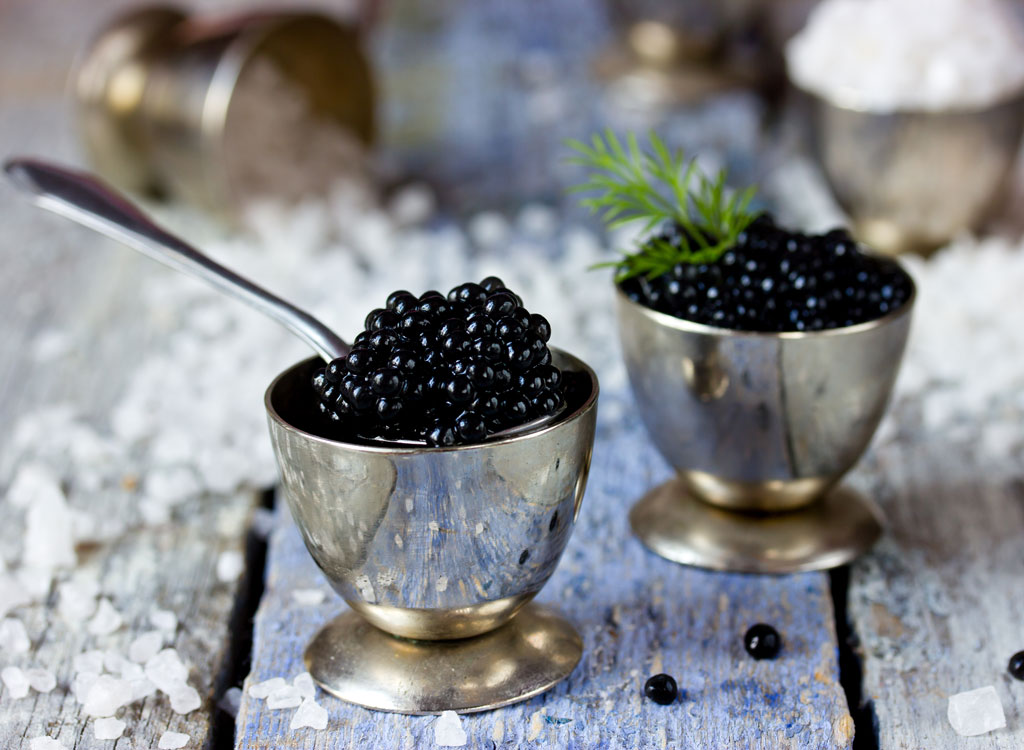
Costing upwards of $200 per ounce, Beluga caviar may be off-limits to penny pinchers, but it is also outlawed in the United States to protect endangered species. These pricey fish eggs come from the Beluga sturgeon, a critically endangered fish that is found primarily in the Caspian and Black Sea basins. In an effort to reduce poaching, the United States has banned the importation of Beluga caviar since 2005.
Chewing Gum

Singapore is known for its cleanliness, and when it comes to stray gum, they're not fooling around. The country outlawed chewing gum in 1992 in an effort to keep the streets clean and free of stains. Vendors who choose to sell the banned substance risk a sentence of up to two years in prison or fines as high $1000.
Ketchup
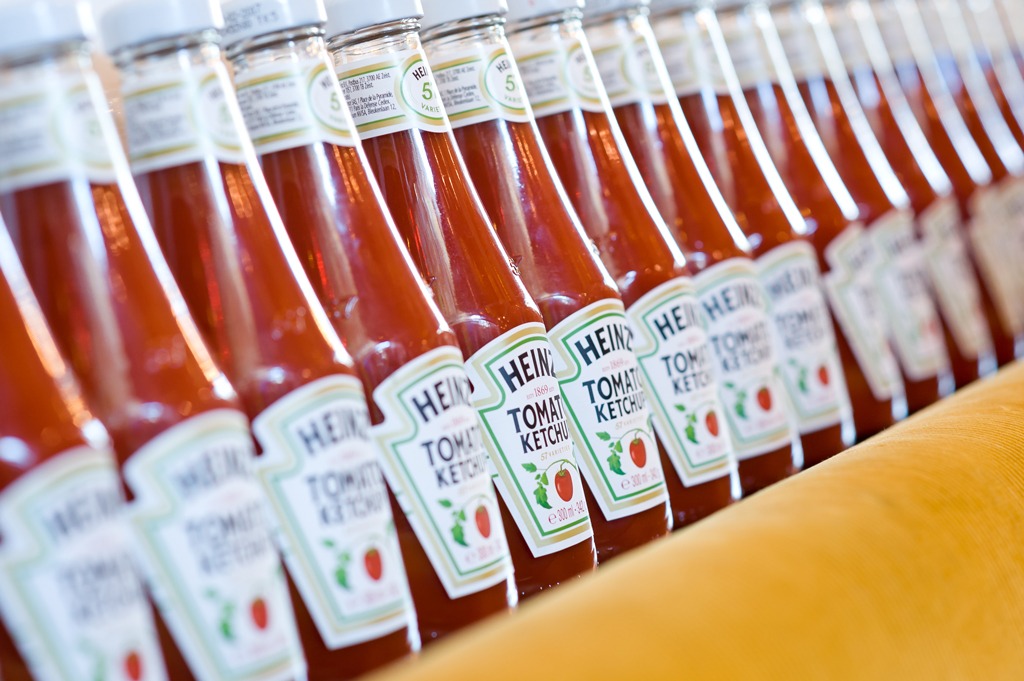
You may love dosing a burger with ketchup, but French school children would get in serious trouble. In 2011, the nation introduced new nutritional guidelines in schools which included a restriction on the sweet tomato-based sauce. In an effort to preserve French culinary traditions, students are only allowed to consume ketchup with French fries, which they are served once per week.
M&M's
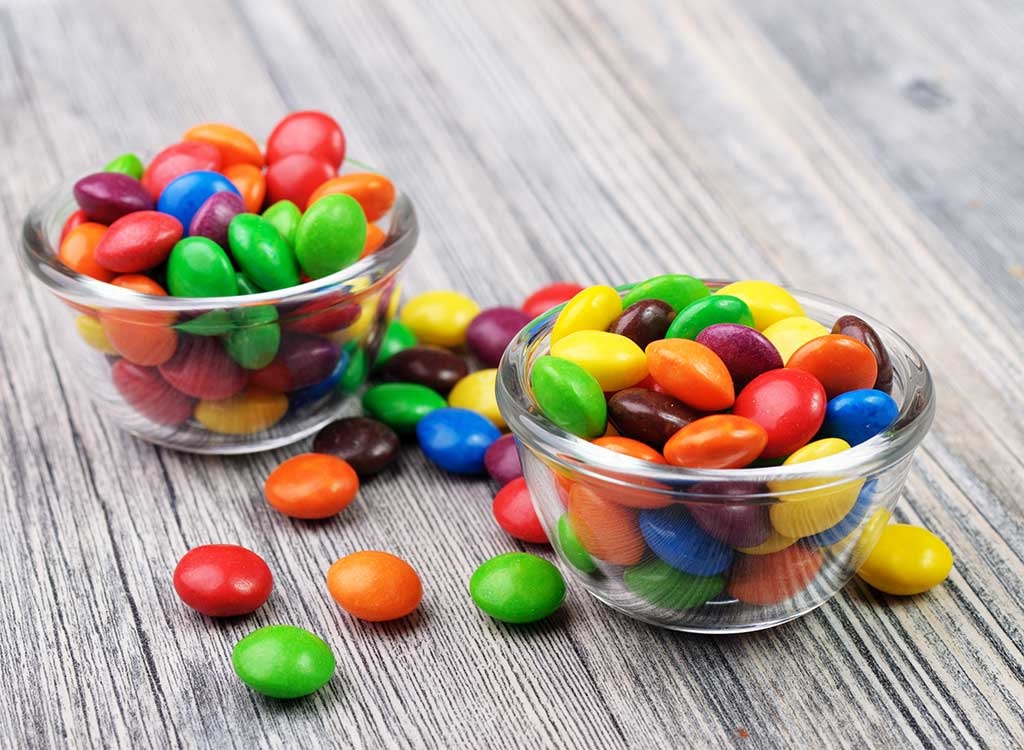
Candy coated chocolates are no one's idea of health food, but that's not what's causing Sweden to nix them entirely. Instead, the nation is banning the sale of M&Ms because a court ruled that the candy's branding is too similar to another chocolate covered peanut snack, M by Mondelez. The company has been selling their delicacies in Sweden since 1957 and objected to M&M's similar name and logo.
Sassafras Oil
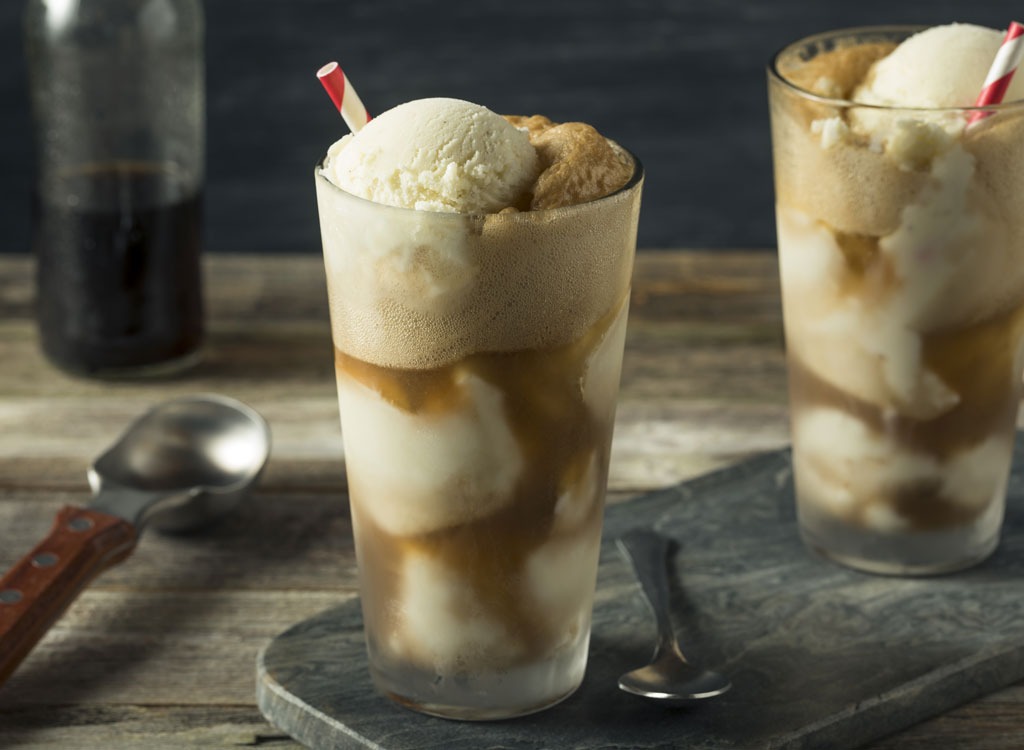
Once the main flavoring component to root beer, sassafras oil is now banned in the United States because it is a known carcinogen. An excess amount of the substance has been linked to kidney and liver damage and it has also been used as a hallucinogen comparable to MDMA. If you're craving a root beer float, don't worry; modern day sodas use artificial flavoring to mimic the taste of sassafras.
Fugu
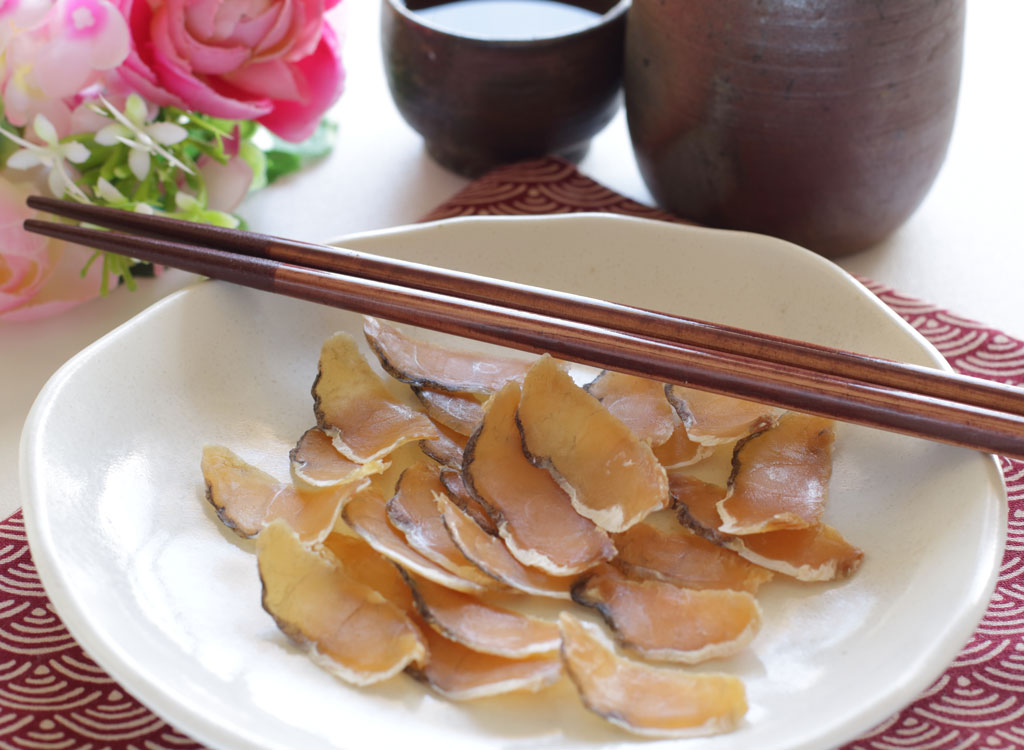
One of the world's most dangerous fish, Fugu can literally kill you if it is not prepared correctly. The Japanese delicacy contains tetrodotoxin, a poison that is 1,200 times more deadly than cyanide. Less than a pin sized amount is enough to kill someone, which is why the United States forbids the sale or preparation of fugu without a license.
Haggis
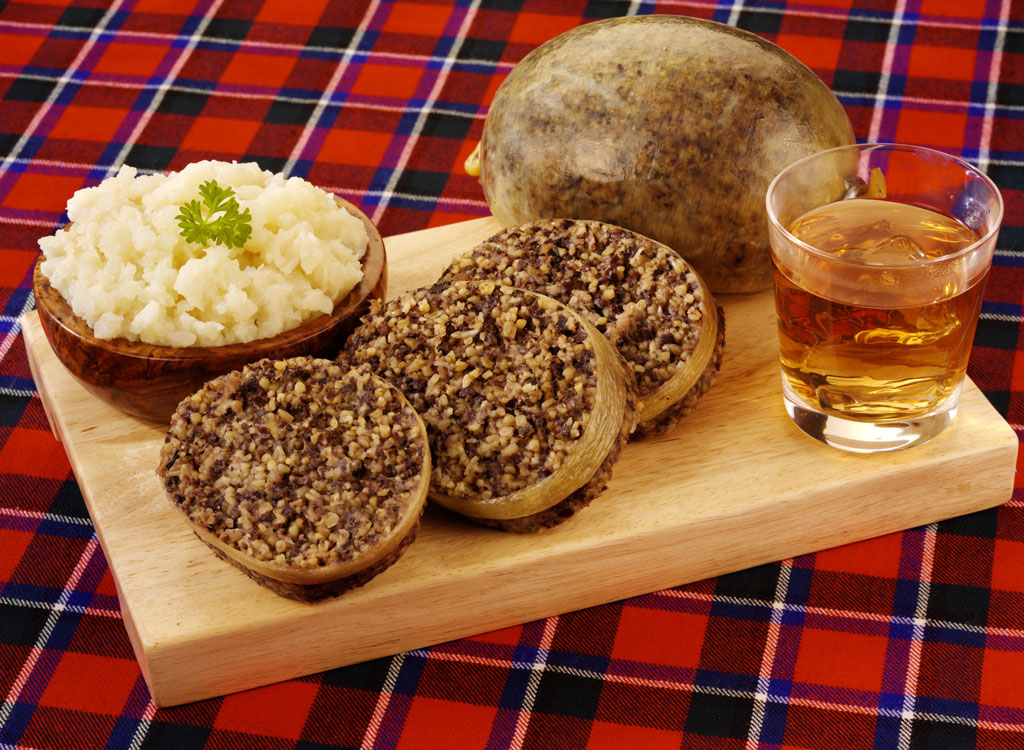
Another international delicacy the US prohibits, this Scottish pudding is made with sheep's heart, liver, and lungs. In 1971, the United States Department of Agriculture ruled against the consumption of livestock's lungs, making haggis an illegal dish to serve in the States. Although the Scottish government has been trying to negotiate a change, this law remains intact and haggis continues to be banned nearly half a century later.
Shark Fins

The sale and consumption of shark fin, which is primarily used in soup and Chinese fine dining, is already off-limits in California. The Shark Fin Sales Elimination Act was recently introduced in Congress and if passed, will outlaw the sale of shark fins across the country. Advocates of the bill believe it will help protect shark species and prohibit the inhumane practice of chopping fins off of live sharks, which causes them to die a slow and painful death.
Raw Milk
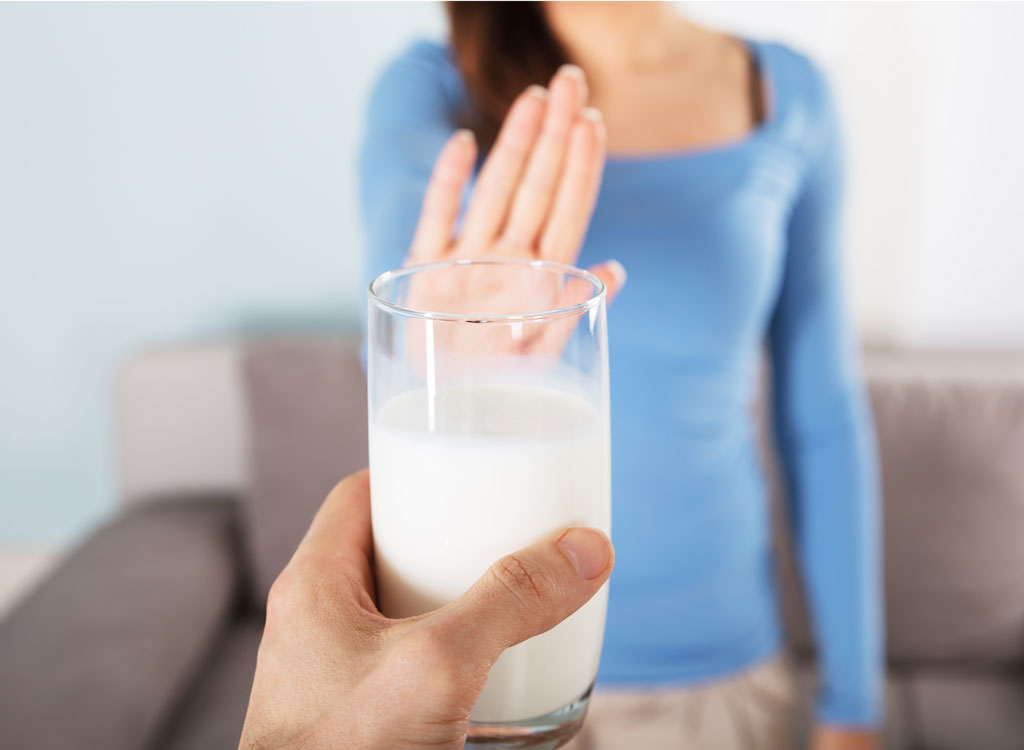
Also known as unpasteurized milk, raw milk has been illegal to sell across state lines for nearly thirty years. The American Medical Association and The Center for Disease Control and Prevention both strongly advise avoiding this kind of milk, due to the potential risk of foodborne illness. While unpasteurized dairy is off limits in America, many European countries regularly consume raw milk, and nations including Austria and Switzerland have even installed vending machines that distribute it.
rBGH
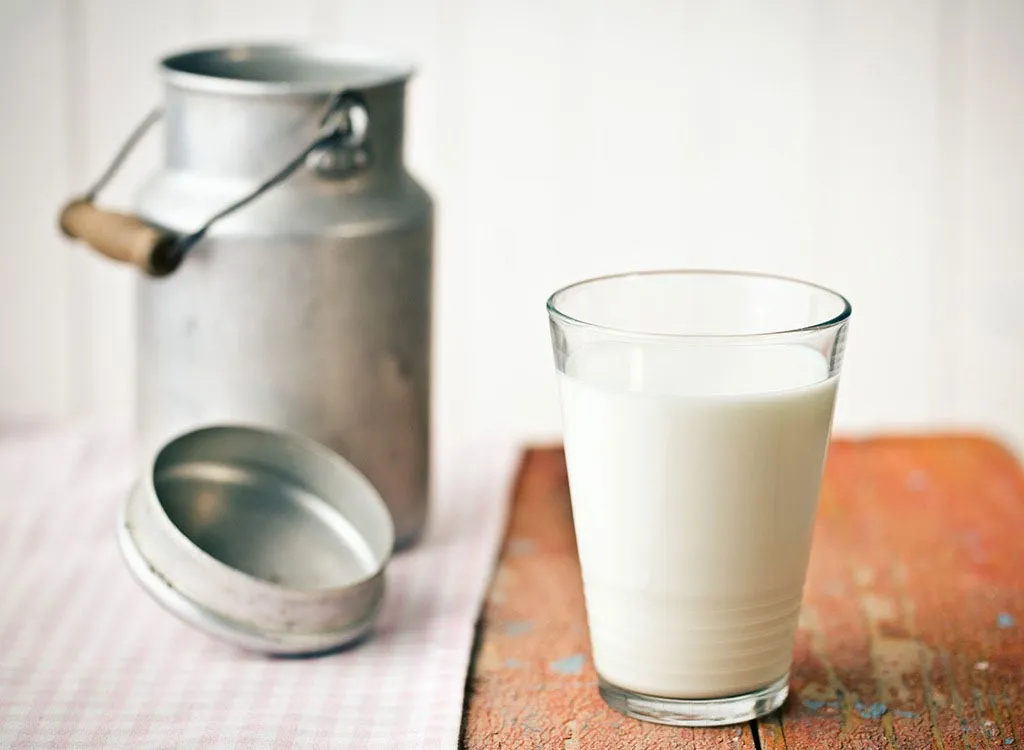
In another dairy-centric law, Canada, Israel, and the European Union all ban rBGH. This genetically engineered hormone is designed to increase milk production in cows suffering mental and physical strain from cattle camp conditions. rBGH has been shown to cause antibiotic resistance and higher incidence of disease in cows which has prompted its ban in many countries.
The next time you contemplate trying an exotic dish or taking a swig of fresh from the farm milk, think again; depending on what it is and where you are, you might just be breaking the law.
Sea Bass
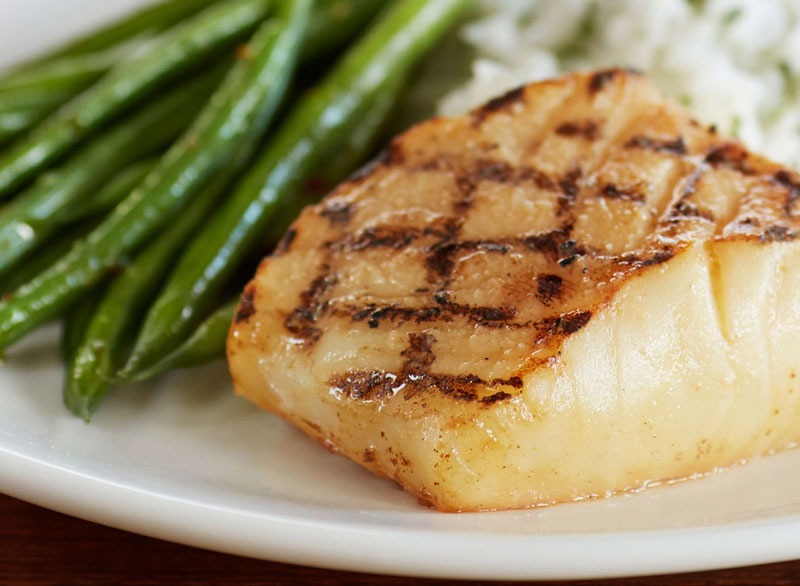
Sea bass is a popular choice at upscale restaurants around the country, but this is not the case in Great Britain. A year ago, the country proposed banning the commercial fishing of Atlantic sea bass, due to a dramatic reduction in the species population. The same proposal suggested restricting the sale of Celtic cod and Irish sole for similar reasons. While the ban has not gone into effect as of yet, there's a good chance these seafood favorites will be off limits to diners in Great Britain in the years to come.
As long as you choose sustainably, fish is a fantastic meal choice. Check out our list of 20 Reasons You Should Be Eating More Fish to learn why this is such a sound nutritional decision.
EDITOR'S NOTE: A previous version of this article stated that the original formula of Four Loko was banned. Four Loko was never actually banned; rather, Phusion Projects, the beverage company that makes Four Loko, voluntarily reformulated it in 2010 to remove caffeine, guarana, and taurine.
